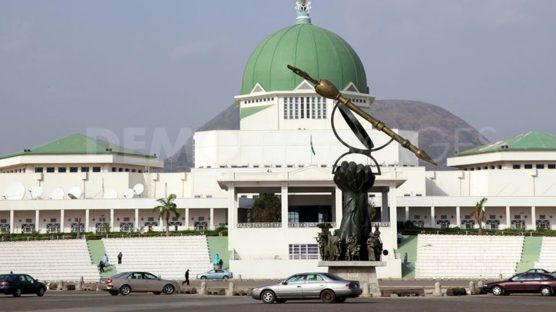
NASS
NASS warns over soaring public debt, calls for regional oversight
The National Assembly has issued a stark warning that the country’s escalating public debt, which reached N149.39 trillion (US$97 billion) in Q1 2025, poses a severe threat to the nation’s future if left unchecked.
The warning was delivered by the leadership of both legislative chambers at the 11th Annual Conference of the West Africa Association of Public Accounts Committees (WAAPAC) in Abuja.
Lawmakers highlighted areas of concern to include breaching if limits, regional crisis, and the need for oversight.
The Speaker of the House of Representatives, Abbas Tajudeen, said the debt-to-GDP ratio has hit roughly 52%, significantly exceeding the country’s statutory ceiling of 40%.
He described this breach as a signal of “strain on fiscal sustainability.”
On regional crisis, the lawmakers placed Nigeria’s situation in a broader continental context, citing alarming debt-to-GDP ratios in other African nations like Sudan (344%), Ghana (84%), and Kenya (70%). They noted that many countries now spend more on servicing debt than on essential services like healthcare.
In the same vein, Senate President Godswill Akpabio emphasized that while well-managed debt can fund development, unchecked borrowing “mortgages the future of our citizens.”
He urged West African nations to empower their public accounts committees with legislative authority to guarantee their independence and effectiveness.
The lawmakers proposed the establishment of aWest African Parliamentary Debt Oversight Framework under WAAPAC.
This initiative aims to create regional standards for transparency, harmonize debt reporting, and provide legislatures with the data needed for effective scrutiny of government borrowing.
In contrast,the Minister of Finance and Coordinating Minister of the Economy, Wale Edun, struck a more optimistic tone. He argued that the government’s bold economic reforms—including the removal of fuel subsidies and exchange rate liberalization—are yielding positive results.
Edun cited key improvements to include a drop in the debt service-to-revenue ratio to about 60% in 2024, a debt-to-GDP ratio of 38.8%, which he stated is “comfortable” by global benchmarks (contradicting the lawmakers’ 52% figure, potentially due to different calculation methods or timing), and a 34.7% growth in revenue in the first half of 2025 compared to the same period last year.
The minister expressed confidence that these reforms are restoring investor confidence and creating fiscal space for future investments.
